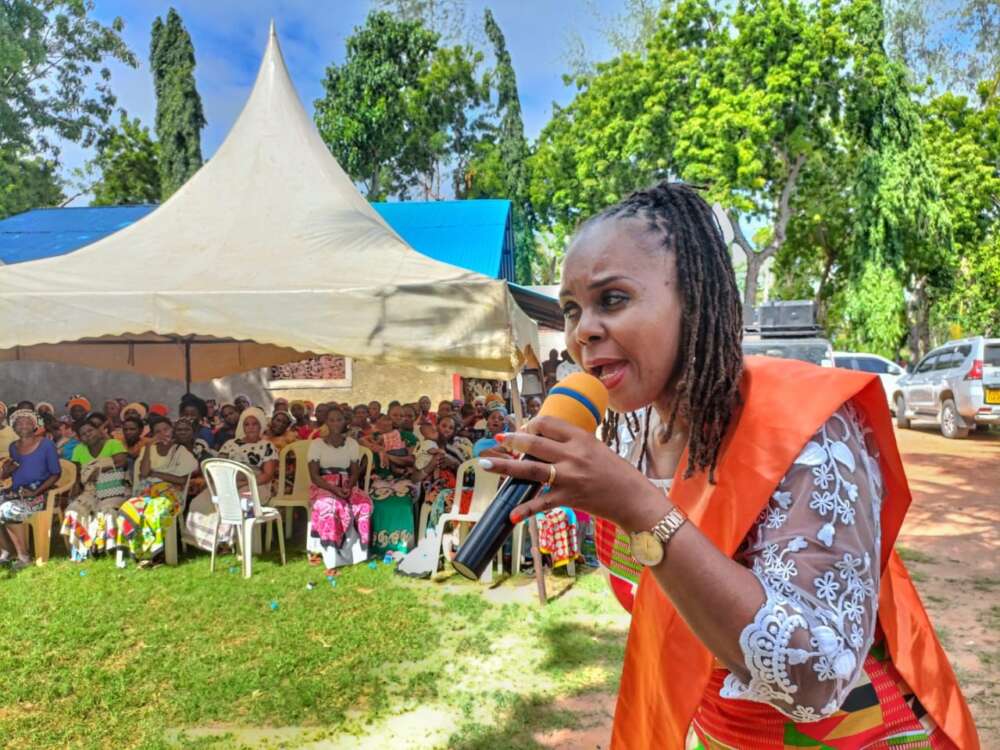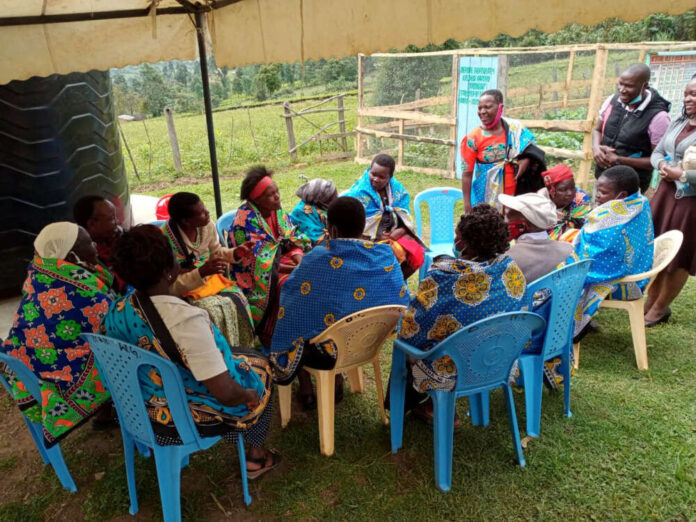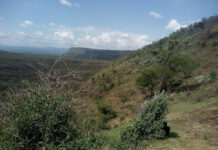By Mahmood Mwanduka, DevReporter, Kilifi County

Key Highlights
- Women in Kilifi, particularly those with little or no formal education, are forming groups that have restored happiness to their families by enabling them to put food on the table.
- The majority of these women’s groups do not benefit from any government funding.
- A lack of awareness prevents women from seizing important opportunities, leading these groups to call on their leaders to prioritise awareness creation among them.
As the world faces significant climate changes that threaten farming activities in various parts of the globe, including Kenya, women in Kilifi County have developed strategies to sustain their families.
By forming groups, these women are empowering themselves. Through these groups, they can access small loans to meet their family needs, such as paying school fees for their children.
Women Power
Eunice Mbenzi, a member of one of the women’s groups from Rabai sub-county, stated that they formed a group of about 20 members after experiencing harsh living conditions. The group was established to help them overcome these challenges.
“About six years ago, we decided to unite and form a group as women, with the intention of empowering ourselves in the villages,” Mbenzi said.
These groups have transformed the lives of many rural women in the area, with many now serving as the primary breadwinners in their families.
Conducted Campaigns
As the saying goes, empowering a woman empowers society. Mbenzi’s group has conducted campaigns to encourage other women to form their own groups.
This reporter met another group of about 30 members, which operates slightly differently, as a merry-go-round.
Kanze Fereji, the group’s secretary, explained that each member contributes twice a month to the group.
“There are about 30 members, and each contributes Ksh.300 twice a month. The amount is then given to two members,” Fereji said.
Most members of these groups have used the resources to educate their children from primary school through to higher education.
“This group has helped me educate my children through secondary school, and now some have completed college,” Mbenzi stated.
Additionally, Mama Amina, another member, informed RB News that she has initiated various projects, including businesses, that have improved her quality of life since joining the group.
Ambiguous Processes
Despite registering some level of success, many of these women are still not benefiting from government opportunities that are aimed at supporting them.
Mama Mruu and Joyce Mbenzi expressed concerns about the ambiguous processes and laws that prevent them from obtaining grants and financial support from the government.
“If possible, we urge the authorities to reconsider the registration certificate requirements and to simplify the numerous laws governing the acquisition of this certificate, as it has become a challenge for us,” the women stated.
They also highlighted that, despite numerous programmes from the government and various financial supporters, women in rural areas lack awareness of how to benefit from these initiatives.
Women Empowerment Index
As the world strives to meet the Sustainable Development Goals (SDGs), a report by the Women Empowerment Index (WEI) indicates that only 29% of women aged between 15 and 49 are empowered. Notably, 40% of these empowered women reside in urban areas, which is twice the percentage found in rural areas.
The national government has introduced specific funds to support the attainment of SDG 5, which aligns with its Vision 2030, and aims to provide financial assistance and empower women.
These initiatives include the National Government Affirmative Action Fund (NGAAF) and the Women Enterprise Fund (WEF).
Kilifi women representative, Getrude Mbeyu, has urged women, youths, and people with disabilities, to form groups to access these funds.
“If you empower a woman, you empower the entire community. When a woman is enabled to undertake a project, she will buy flour, care for her child, and purchase books and stationery for her children. When this woman has financial resources, it positively impacts the family and society,” Mbeyu explained.
Additionally, the Kilifi County government launched the Wezesha Fund in 2023, with Deputy Governor Flora Mbetsa Chibule encouraging women to apply for assistance.

As most women’s groups in rural areas do not currently benefit from government funding, Kilifi’s women are calling for enhanced awareness regarding how they can take advantage of government initiatives.
The women are advocating for awareness campaigns that highlight the importance of forming groups and the registration process, ensuring that women are not excluded from government development programme.
Related Stories:
https://www.youtube.com/watch?v=KudeT1A3j_M&pp=ygUWd29tZW4gZ3JvdXBzIGluIGtpbGlmaQ%3D%3D






